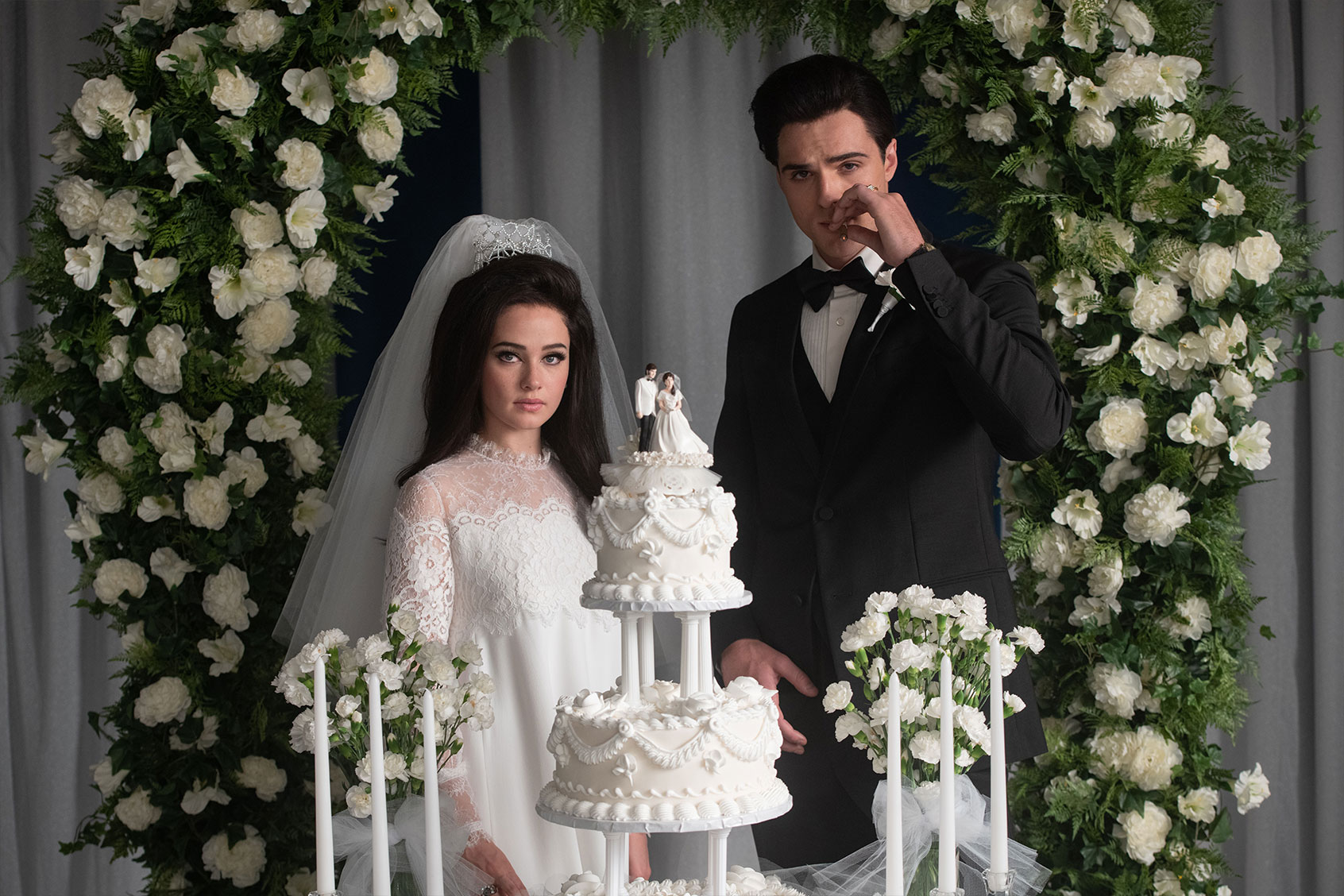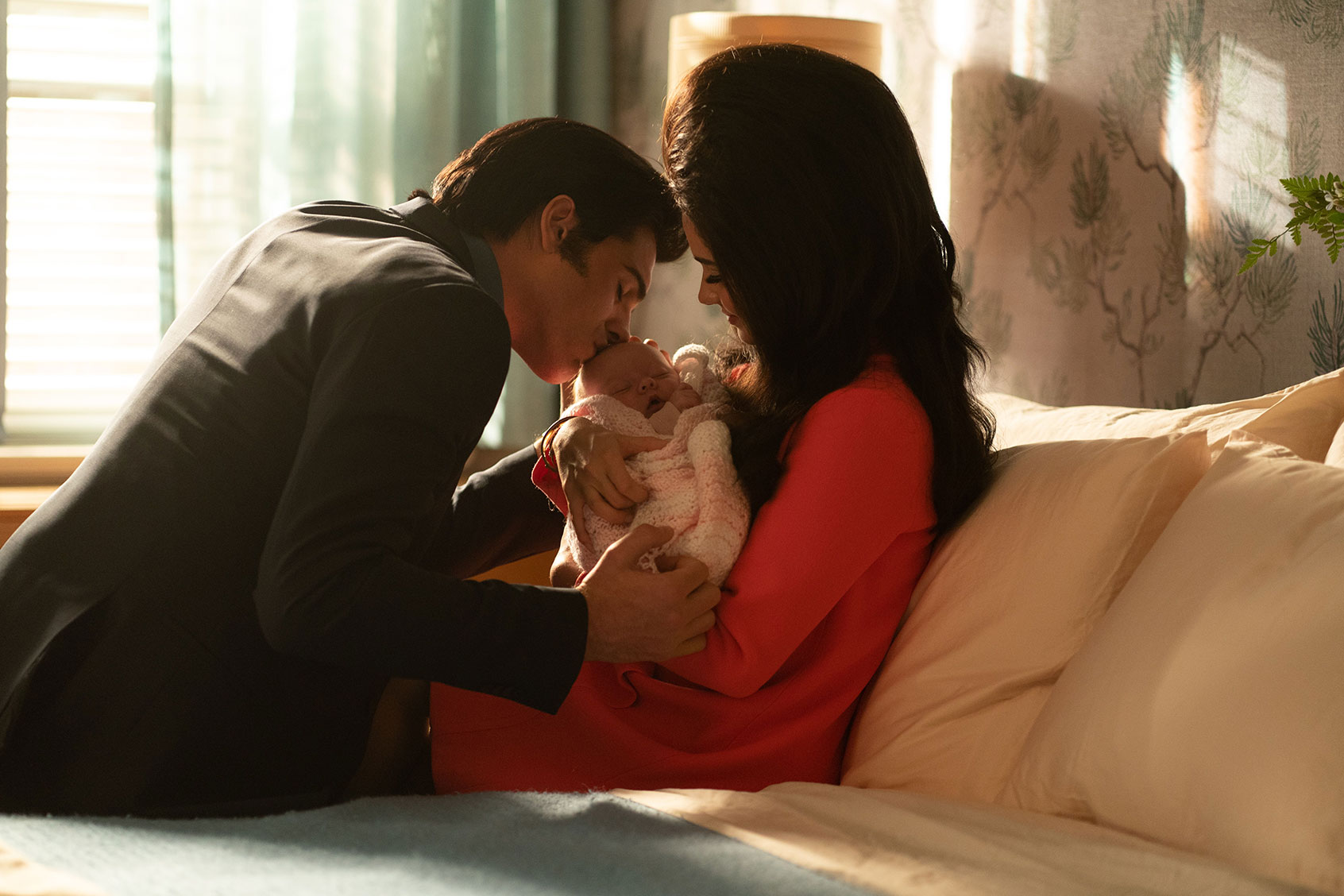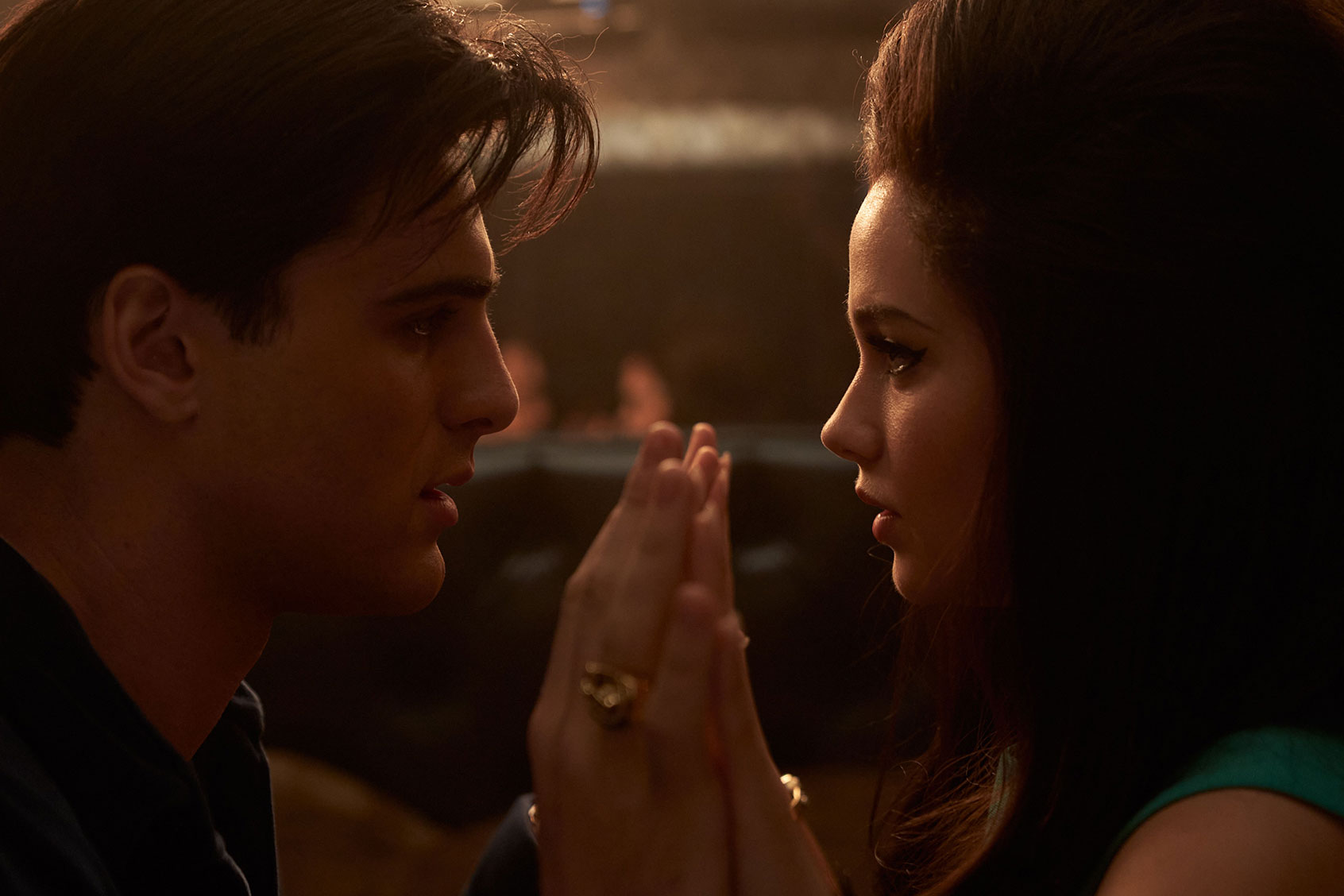Sofia Coppola's "Priscilla" begins its retelling of Priscilla Presley's life with a girly montage of pink toenails on a plush soft pink carpet, a lash strip ready to be plastered on a dark cat eye and hairspray to hold her luminous, dyed locks. You can't forget the poodle skirt either. All the things that make a '50s girl, a girl. It's a look that will be drastically made over by her future lover through the course of the film.
Based on Presley's memoir, "Elvis and Me," Coppola's take on the life of the girl once known as Priscilla Beaulieu is biting in establishing her teen girlhood and how her life turns upside down when she meets Elvis Presley in war-stricken Germany in 1959. The film paints the start of their union of a very lonely girl meeting a very lonely, older celebrity crush. They fall in love and the rest is history. We've seen it, we've read about it but we've never really experienced it through Priscilla's eyes.
Asking a child to stay the same is a way to reinforce his power to dictate who she is.
We see how Priscilla evolves from an unassuming 14-year-old into the slightly more mature, yet still underage, object of Elvis' desires. Unknowingly to Priscilla, being that object of desire comes with some strict stipulations. One of those stipulations is how Elvis controls almost every aspect of a naive Priscilla's life. She leaves her hometown and high school in hopes of being Elvis' committed girlfriend. But she doesn't understand what that entails until she is left alone almost every day in his Graceland mansion. Whenever Elvis is present and not off touring or on a film set, he begins to mold her to his liking and in his own striking image.
This transformation seems innocent enough when it starts with a gift as Priscilla and Elvis' relationship deepens in Germany. Elvis gives her a beautiful, dainty gold watch and quietly demands, "Promise me you'll stay the way you are." Of course, she obliges. After all, she is only 14 years old and doesn't know any better. In this scene, he doesn't physically change anything about her but asking a child to stay the same is a way to reinforce his power to dictate who she is. In this moment, it's like he wants to freeze her innocence in time. The golden watch symbolizes that he is ready to imprint himself on her before she's even had the opportunity to figure herself out. She wears the watch throughout the entirety of the film.
It's when Priscilla visits Elvis in Graceland for the first time, flouting all her parents' rules, that Priscilla transforms physically to be more similar to him, with his approval of course. They travel to Las Vegas together looking and dressing like a power couple. Her hair's volume is fuller. She starts wearing more revealing two-pieces, and her makeup looks significantly darker. When she returns to school afterward the difference is stark. She is back in her teenage clothes — back in her teenage life, feeling purposeless without Elvis' presence telling her what to do or feel. So she decides she will permanently move to Graceland, drop out of her high school, and enroll in a Memphis Catholic school that Elvis picks out.
 Cailee Spaeny as Priscilla and Jacob Elordi as Elvis Presley in "Priscilla" (A24)
Cailee Spaeny as Priscilla and Jacob Elordi as Elvis Presley in "Priscilla" (A24)
One study has shown that many men are attracted to women who look like them.
As Elvis' full-time, live-in girlfriend, she has to look the part. Elvis enforces that Priscilla gets a new look, changing everything about Priscilla's physical appearance to emulate her rich, famous and older new boyfriend. Coppola's film shines in this scene as it reinforces the power imbalances in Elvis and Priscilla's relationship. Priscilla tries on different dresses, modeling them Elvis who is obviously carrying all the cash. He loves her in a blue gown because "blue's your color," he declares. He hates her in a long-sleeved brown gown even though it's her favorite. When she asks "What about how I feel?" he doesn't care, as long as she looks like the doll he is customizing in his image.
During the scene, Elvis also strongly suggests that Priscilla wear more eye makeup because it'll "make your eyes stand out." He tells her to dye her hair to match his jet-black hair, held together with hairspray and shoe polish. Priscilla herself once said in an interview that Elvis "did want me to dye my hair black when I was young so we could look alike a little bit." So she did. Her hair becomes darker and larger than her small stature. Her light eyes become painted in dark eyeliner because Elvis said so.
This isn't a new phenomenon though. One study has shown that many men are attracted to women who look like them – but there's an added level of creepiness because Priscilla was a child when most of this change was happening to her. A sign of grooming according to experts is "having money or new things like clothes and mobile phones that they can't or won't explain." This is a way that an abuser can build a connection to a child that they are aiming and prepping to manipulate, abuse and exploit. This sounds a lot like the relationship between Elvis and Priscilla. He gifts her with all these clothes and changes the way she looks she is no longer recognizable as a child, but rather a child masquerading as a fully grown woman that Elvis has created.
We need your help to stay independent
When she does wear a dress she loves that is colorful, looser fitting and not too sexualized, Elvis says it doesn't suit her because she's a small girl and it hides her figure which visibly enrages Priscilla for the first time in the film. Moreover, Priscilla exists as a vessel for Elvis' self-centered wants and desires — never taking Priscilla's thoughts or wants into mind. Her thoughts or feelings do not exist because she is an extension Elvis and not a full person belonging to herself.
 Jacob Elordi and Cailee Spaeny in "Priscilla" (A24)But their relationship falls apart shortly after they have their first child, Lisa Marie. Elvis' drug use and infidelities push the couple further and further apart. But in motherhood, Priscilla finds her voice and most importantly, a sense of identity outside of the mirror Elvis used her as in her role as his wife. Elvis' lack of involvement in her life and her complete disillusionment of him, forces her to fight for herself. Her style becomes elevated in a muted, mature way. She's forced to parent her child as a child and her clothes reflect that — she wears blouses, high-waisted bellbottoms, stops dyeing her hair, and tones down her makeup. In the couple's very dark, last scene together in Las Vegas, she wears the dress he hates earlier in the film. Elvis assaults Priscilla, and she fights him off of her before she demands a divorce. Even in a moment of empowerment for Priscilla, Elvis is still trying to take advantage of her — even though she's no longer a child anymore.
Jacob Elordi and Cailee Spaeny in "Priscilla" (A24)But their relationship falls apart shortly after they have their first child, Lisa Marie. Elvis' drug use and infidelities push the couple further and further apart. But in motherhood, Priscilla finds her voice and most importantly, a sense of identity outside of the mirror Elvis used her as in her role as his wife. Elvis' lack of involvement in her life and her complete disillusionment of him, forces her to fight for herself. Her style becomes elevated in a muted, mature way. She's forced to parent her child as a child and her clothes reflect that — she wears blouses, high-waisted bellbottoms, stops dyeing her hair, and tones down her makeup. In the couple's very dark, last scene together in Las Vegas, she wears the dress he hates earlier in the film. Elvis assaults Priscilla, and she fights him off of her before she demands a divorce. Even in a moment of empowerment for Priscilla, Elvis is still trying to take advantage of her — even though she's no longer a child anymore.
Throughout "Priscilla," Coppola intentionally builds a perfectly crafted power dynamic in Elvis and Priscilla's relationship. It's through the fashion and image that Coppola illustrates that Elvis controlled Priscilla's adolescent life. The control permeates every aspect of her life but most importantly is physically visible through her looks and fashion. Priscilla is able to gain agency through her identity as a mother but she never really gets the chance to have a childhood because she existed to serve Elvis and his needs.
Read more
about Priscilla Presley


